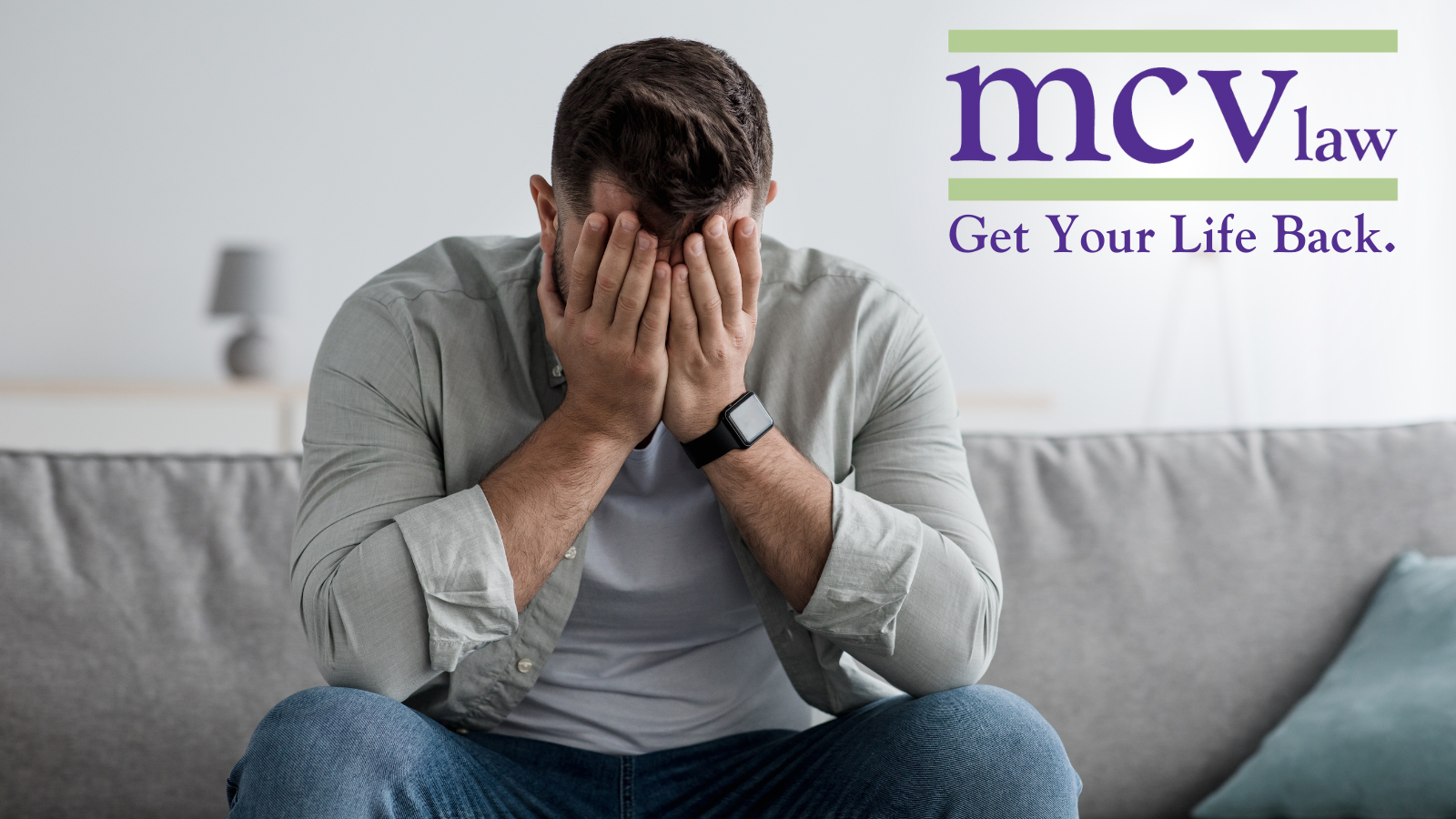
Post-traumatic stress disorder (PTSD) happens after seeing or going through a traumatic event. The effects of PTSD can be crippling. PTSD causes recurrent flashback episodes and nightmares that can disrupt daily activities. Some forms of PTSD include hyper-vigilance, extreme fear of the event recurring, anger or irritability, and a tendency to be easily startled.
Treatment for post-traumatic stress disorder can vary depending upon symptoms, and can involve a combination of counseling, cognitive-behavioral therapy, psychotherapy, antidepressant drugs or antipsychotic medications.
Disability claims for PTSD can be approved two ways. The first way for approval is for your medical records to satisfy the requirements of Social Security's disability listing on trauma and stressor-related disorders. The second way for approval is to get a "medical-vocational allowance." This is the usual way a majority of SSD claims are approved.
MCV Law's Social Security Disability lawyers can help you strengthen your claim, understand the Social Security Administration's eligibility requirements, and give you the best chance of having your application for benefits approved.
Schedule Your Free Consultation
SSDI for PTSD: Satisfying the SSA Listing with PTSD
To meet the requirements of the listing, you must have medical documentation of all of the following: exposure to actual or threatened death, serious injury or violence; subsequent involuntary re-experiencing of the traumatic event ( i.e. Disruptive flashbacks, nightmares, or memories); avoidance of external reminders of the event; disturbance in mood or behavior; and, increases in arousal and reactivity(ex. Exaggerated startle response or sleep disturbance).
Your symptoms must cause an extreme limitation of one or a marked limitation of two of the following:
- The ability to understand, remember and apply information.
- The ability to interact with others.
- The ability to concentrate, persist or maintain pace.
- The ability to Adapt or manage oneself (i.e., regulate emotions, control behavior and maintain well-being in a work setting.
"I could not have asked for a better firm to help with Social Security Disability. I felt comfortable with this firm from the start. Kim Slimbaugh was incredibly knowledgeable and always responded quickly to my emails. I would absolutely recommend this firm!!"
- Bridget P., a satisfied MCV Law Social Security Disability client
SSDI for PTSD: What is a Medical-Vocational Allowance?
To be considered for a medical-vocational allowance, SSA will have determined that you do not qualify for benefits on the basis of meeting the requirements of the listing, but that your symptoms could be severe enough to prevent you from working. Individuals with PTSD often have fatigue from poor sleep patterns, trouble concentrating, and memory problems, all of which can interfere with the individual's ability to work and maintain a job.
If you have other medical problems that limit your ability to work, you are more likely to be approved for a Medical Vocational Allowance.
What Medical Evidence is required to prove PTSD?
What is in your medical records means everything to proving your SSDI claim. Your mental health records should have a detailed description of what happened to you. There should also be at least one detailed description of a typical episode of PTSD, including the frequency and duration of any panic attacks, and what brings on worsening symptoms. Your doctor should also include whether your description of your symptoms matches his or her opinion of your mental status. Most importantly, your medical records should include how your PTSD symptoms effect your ability to function, both at home and at work.
Contact a Social Security Disability Lawyer for a Free Consultation on SSDI for PTSD
Applying for SSDI benefits for PTSD can be confusing and complex. You should seek help from an experienced Social Security Disability attorney who can guide you through the process.



